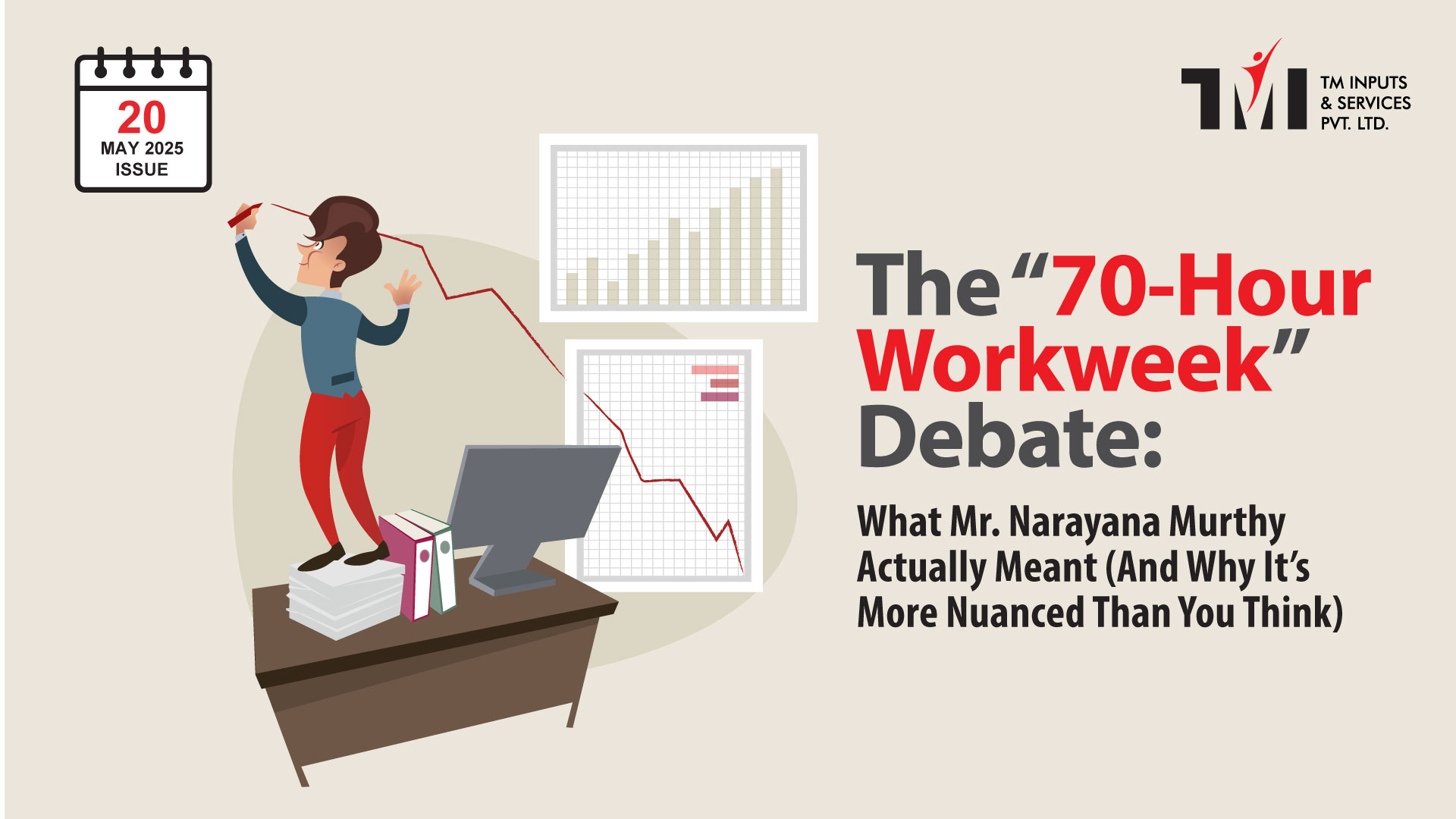
The “70-Hour Workweek” Debate: What Mr. Narayana Murthy Actually Meant (And Why It’s More Nuanced Than You Think)

A statement by Mr. Narayana Murthy stirred up the internet like a double shot of espresso on an empty stomach. He said young people should work 70 hours a week—and cue the collective gasps, Twitter threads, and LinkedIn think pieces.
But before we sharpen our pitchforks or print “Rise & Grind” on T-shirts, let’s slow down and unpack what he actually meant—and why this isn’t about glamorizing burnout, but understanding the game of growth.
Here’s a Breakdown of the Argument in Three Parts:
1. Global Competitiveness: Welcome to the World Stage, Now Keep Up
Like it or not, we’re competing on a global scale. And right now, India’s workforce productivity is trailing behind countries like Japan, South Korea, and China.
Now, productivity isn’t just about hours—it’s about output. And if we don’t have the right tools or training, we can’t match that output unless we put in more time. Until systems, tech, and infrastructure improve, hard work fills the gap. The global market isn’t judging us by effort. It’s judging us by results.
So if you’re part of a company trying to build, scale, and compete with international giants? Yeah, some grind might be necessary—at least for now.
2. Role Mastery > Smart Work (Yes, Really)
Let’s talk real-life careers. The idea that you can immediately do “smart work” without first mastering your role is… a fantasy. There’s no AI hack or productivity hack that replaces deep skill.
Mr. Murthy shared a story from his early days—sleeping in the office, working weekends—not for applause, but because that’s what it took to learn the job inside-out. That’s called role mastery. And it doesn’t come from shortcuts.
You first earn the right to work smart by working hard. Once you’ve got the skills, systems, and experience under your belt, that’s when you bring in automation, pattern recognition, and smarter delegation.
Smart work isn’t a cheat code—it’s the reward you unlock after the grind.
3. It’s Not 70 Hours Forever (Don’t Panic Yet)
Here’s the key part that got lost in translation: nobody is saying you should work 70 hours a week forever. Mr. Murthy is talking about the early stage of your career.
Think of it like a bootcamp phase. You put in the effort, build your foundations, gain role mastery—and then, you optimize. What once took you 70 hours might now take 30, thanks to automation, better systems, and your evolved skillset.
It’s about front-loading the effort to build long-term career leverage.
So… Should You Work 70 Hours a Week?
Let’s be honest: not everyone can or should. Context matters—your health, your circumstances, your goals.
But if you want to play on the world stage, or level up fast, or become elite in your field? Then yes, there’s a phase where unreasonable effort is the price of admission.
This isn’t about hustle culture. It’s about learning, mastery, and momentum.
So don’t be afraid of hard work—just make sure it’s part of a strategy. Know when to push. Know when to pause. But above all, know that greatness usually doesn’t come with a 9-to-5 mindset.
